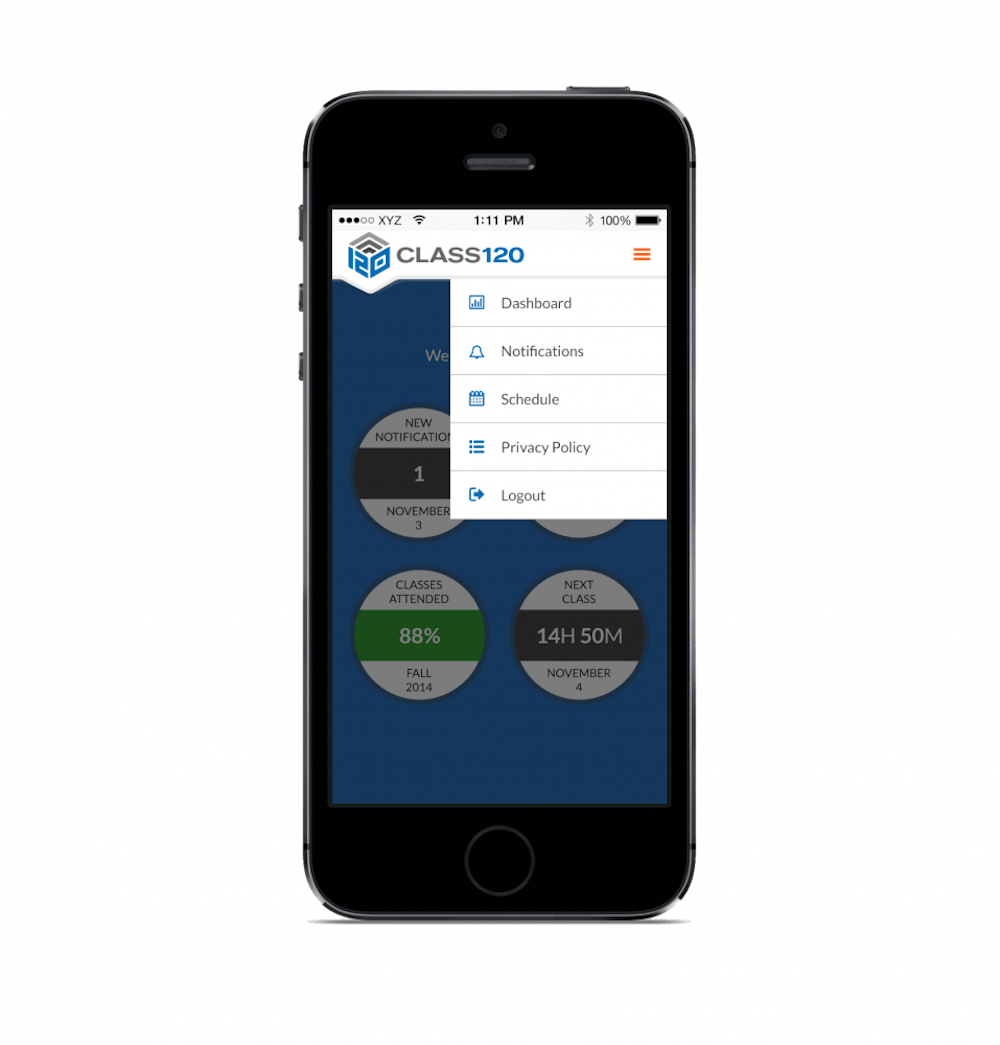Basic: $17.99/month
1 year class attendance monitoring
30 day money back guarantee
Plus: $19.99/month
1 year class attendance monitoring
30 day money back guarantee
Live reminder service
A new Indiana app could prevent students from skipping college classes by alerting parents when they miss.
Jeff Whorley, the CEO of Core Principle, has developed Class 120, an app that uses geolocation technology to tell if students are in class to try to raise graduation and retention rates.
“[Graduation rates] are a big problem,” Whorley said. “Many students have no degree, but [do have] debt and it’s a problem at a lot of different types of schools. I know some college presidents who are really working on improving retention rates and it’s tough, they haven’t been able to move those rates very much.”
The app allows students to input their schedule, and the geolocation technologies can tell if the student is in class or not at the time they are supposed to be there.
The app is just a tool to track class attendance, however. It doesn’t show parents where students are at any other time.
Whorley got the idea for the app from a professor he was talking to who told him the solution was simple: treat all students like he treated Division I athletes.
The professor told Whorley that for all the athletes in his class, there was a phone number he had to call if the athlete hadn’t shown up within the first five minutes.
“He said it was a pain, but maybe it happens a time or two if they miss class in the first month, and then they don’t miss class anymore,” Whorley said.
Class attendance is the best predictor of how students will do in a class, more than their high school GPA, ACT score, SAT score or how much students study, according to a study done by the American Educational Research Association. Mandatory attendance policies seem to have a positive impact on grades.
Core Principle has geomapped 2,000 campuses to put the technology needed for the app on campus, including Ball State’s.
Whorley said there were some universities using the app for themselves to try to improve student performance.
“What they have discovered is that when students get in a spiral of dropping out, most institutions have no means of knowing that,” he said. “They’re putting Class 120 in so they can see if young Jeff has missed three days in a row. Most institutions figured out after two or three weeks when they’re in a spiral. When we talked to dropouts, they said they ended their career in two or three days.”
Dan Boylan, a finance instructor at Ball State, takes attendance for all of his classes by sending around a sign-in sheet. On top of that, he does in-class activities so he can compare if students had a friend sign in for them.
“Students are relying on reading the PowerPoints and thinking that’s the class,” Boylan said. “So to me, you’ve got to be in class because that’s where the meat of your instruction is going to be.”
He said from his experience, class attendance pushes students' grades up.
“It’s mostly the little things, like deadlines and schedule changes, where if you don’t show up you just won't know about them,” he said. “You should rely on your teacher and not your friend for due dates.”
He said given the option between going to class and staying home, most people would choose not to go to class.
Maya Burrell, a freshman fashion merchandising major, said she would not use the app.
“I don’t want my mom to be able to see if I’m going to my classes or not,” Burell said.
But Dagny Zupin, a freshman public relations major, said the app sounds like something her parents would make her use.
“They would say ‘if we’re paying all this money, I want you to go to class,’” Zupin said. “I think it’s smart, because people are more tempted to skip class when they’re not living with their parents and they don’t know.”





